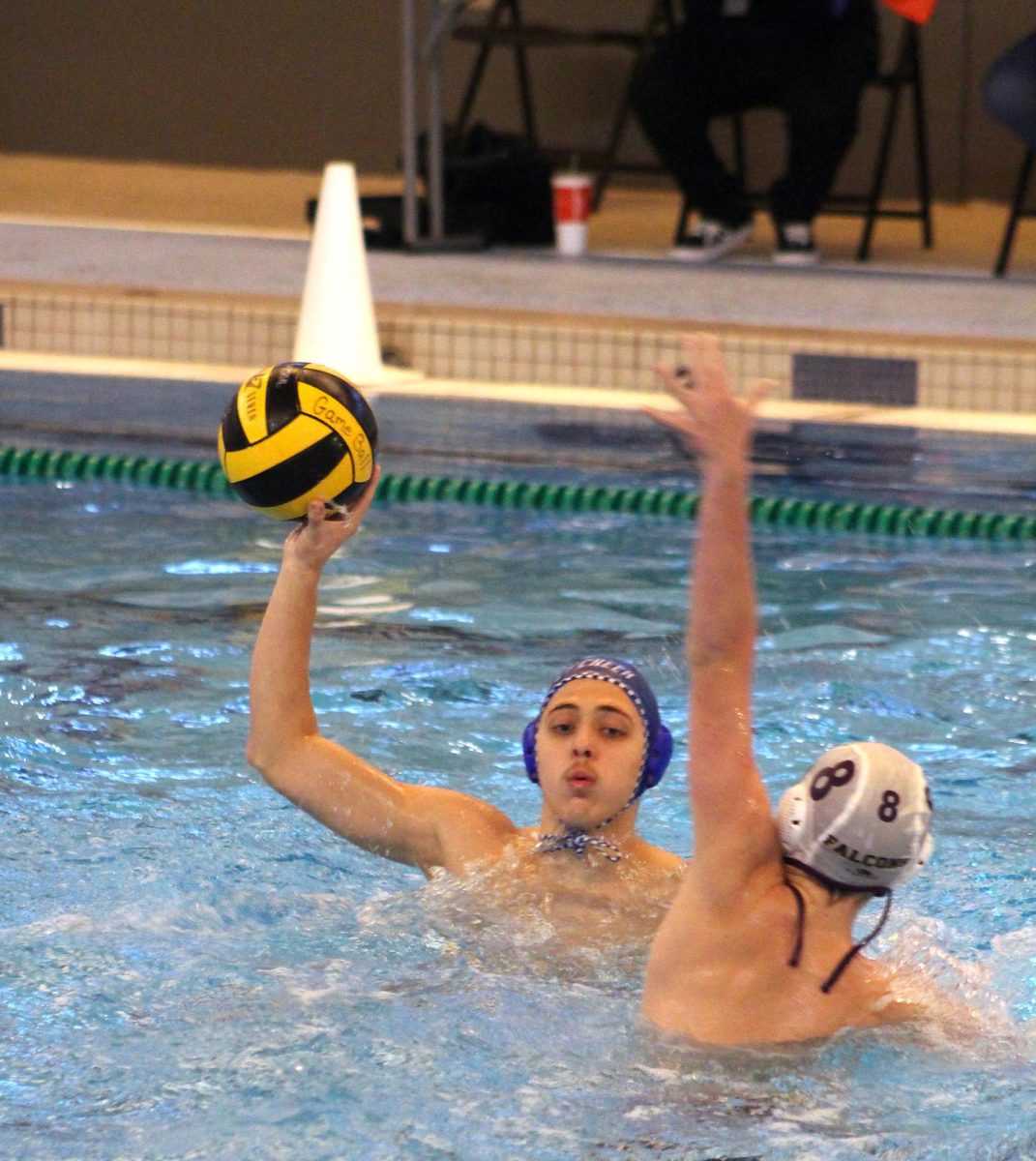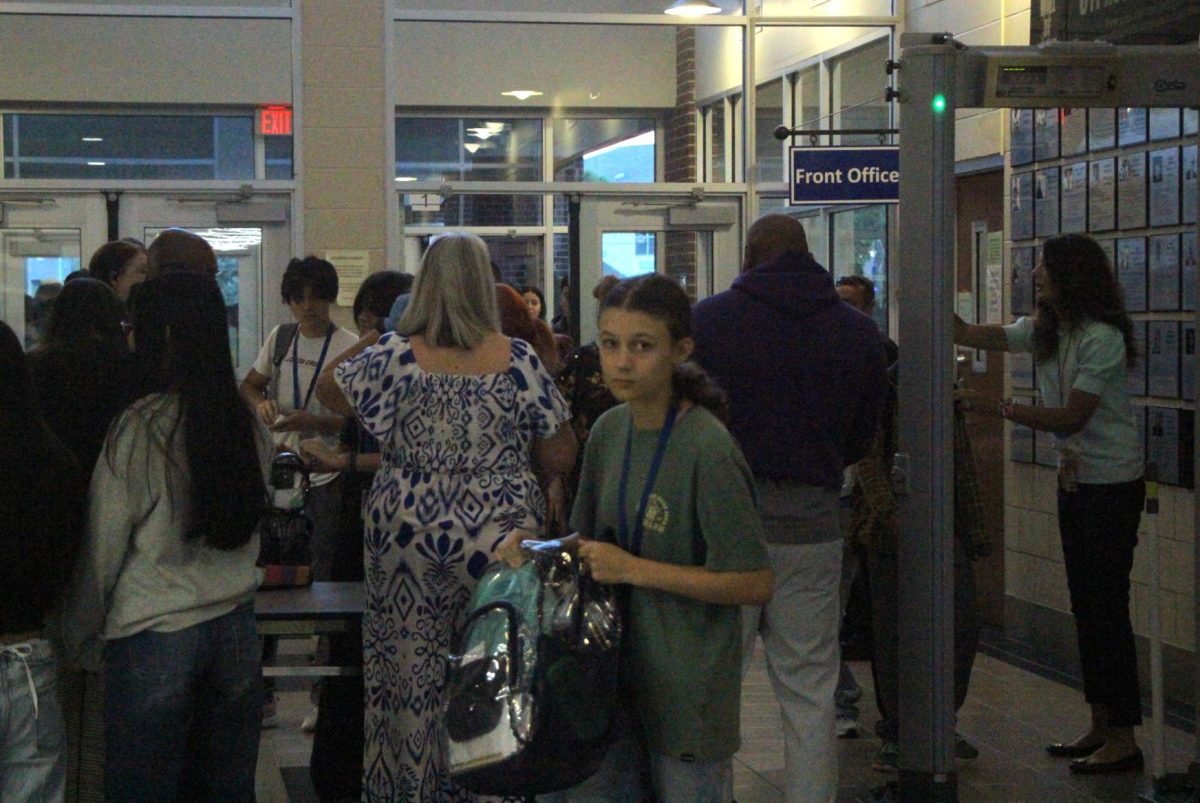After four years of juniors using school-provided laptops, district officials will decide this summer whether U.S. History courses will continue to use them next year.
Juniors began using the laptops in 2009, paid for through $9 million in bond funds. Associate Superintendent of Technology and Student Services Harold Rowe said they have a four- to five-year lifespan. The district recently conducted a student survey and when juniors turn the laptops in at the end of the semester, the technology department will determine whether the laptops are reusable.
“Eventually things age out, whether it’s a car or your phone,” he said. ”That’s the challenge that we have. We certainly know it won’t last forever. The likelihood of them being removed is unknown until we do that assessment towards the end of the year.”
Junior Devon Steinocher said he does not think the administration should remove the laptops.
“It wouldn’t be fair for sophomores and freshmen,” Steinocher said. “It’ll be depriving them from essential resources they could be using.”
Junior Jacob Moya said he does not think the laptops are very helpful and he can learn fine without one.
“I feel we can’t get much use out of them that we can’t get out of a textbook,” Moya said. “We can get the same amount of knowledge out of a book. Plus [the] majority of the laptops are just used for Facebook and YouTube anyways, so really they’re more of a distraction if you ask me.”
Rowe said even if the U.S. History courses continue using the laptops, there’s a chance future juniors may not take them home.
“Our intentions would be to perhaps capture those that are still usable mechanically and make them into classroom sets,” he said. “We could provide those resources in the classroom during the class period, but they may not be go-home [laptops] because we would not have enough sustainable machines for everyone to take home.”
Recently, HISD started a program similar to the CFISD laptop program.
“HISD [began] an initiative that will give a go-home laptop to 130,000 of their children [in grades] 3-12,” Rowe said. “Early on we knew we couldn’t do one laptop for every child as the HISD initiative contemplates, but we could do … one year of a gateway course to give you that experience. … We thought that U.S. History provided the richest opportunity to use the machines.”
Rowe said ever since the CFISD program started four years ago, it has allowed more online collaboration and resulted in higher scores on state exams.
“TAKS scores went up from the first year of the program,” he said. “They were already in the 90s, but we moved up into the mid 90s on social studies and U.S. History.”
Assistant Principal Todd Huisman, who is in charge of textbooks and laptops, said the laptops benefit the students in other ways.
“They are encouraged to use it in other courses, to use it at home and get more acquainted with technology,” he said.
Technical assistant Esmond Desouza said the most common problems he faces with laptops are damage and students altering the Internet settings.
“I think it’s good for the students to have the laptops,” Desouza said. “They just don’t take care of them like they do with their own because they’re renting it.”
The insurance policy students have to pay for in case the laptop gets damaged or stolen costs $35. Huisman said that administration realizes that every student does not have access to $35 on the spot so it’s his job to make a payment plan with students who need help.
“I think [the laptop program is] a good thing,” he said. “I’d like to see it expanded to more than just U.S. History and I’d like to see all of the textbooks electronic and have them all on one device. They are actually pretty good computers and and you can use them in more than just U.S. History.”
U.S. History teacher Ryan Tatum said there are some difficulties, but also some upsides to having the laptops. He likes keeping a balance between his teaching and the use of the laptops.
“Students like the accessibility of the laptops, to take notes and use [it as] a textbook,” Tatum said. “Just the accessibility of information.”
Senior Akram Sirafi said he liked having the laptop last year, but it seemed like there was always something wrong with it.
“I would have liked them more if we had more access,” he said. “We can’t even get on Google without some block.”
The district has started exploring other options as well. Last month, Rowe said students in seven schools received Apple iPads or Android tablets as part of a pilot program in math and science classes.
“I say there’s a friendly competition between tablet makers and classic laptops manufacturers about what device is going to be most prominent and as it turns out it is really based on need,” he said.
Based on the results, Rowe said, he will make a recommendation to the superintendent about future technology purchases.
“It will be interesting,” he said. “It’s an exciting time.”


